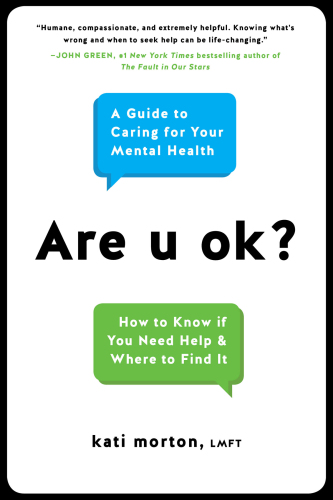
Are u ok?
A Guide to Caring for Your Mental Health
کتاب های مرتبط
- اطلاعات
- نقد و بررسی
- دیدگاه کاربران
نقد و بررسی

October 1, 2018
Licensed marriage and family therapist Morton delivers a beginner's guide to breaking through the stigma of mental illness to discuss the realities of specific conditions, the different kinds of assistance available, and how to receive proper care. She walks readers through the steps of therapy and how to ensure a mental health professional is a good fit. Advice ranges from handling abusive relationships and coping with intense feelings to and recognizing when further treatment is needed. Appendixes list a glossary of therapeutic terms and a checklist of additional resources. VERDICT An exemplary guide for anyone wondering if they or someone close to them may benefit from mental health therapy.
Copyright 2018 Library Journal, LLC Used with permission.

October 22, 2018
Morton, a marriage and family therapist whose YouTube channel has more than 550,000 subscribers, offers an intuitive handbook that empowers readers to tend to their own mental health. She covers enacting meaningful change, identifying complex feelings, seeking help, types of therapy (including medications), and recognizing the signs of a toxic relationship, among other topics. Throughout, Morton includes anecdotes from anonymous patients and shares her own experiences navigating difficult passages in her life. Chapters provide practical tools for handling anxiety, depression, and other mental health difficulties (including journaling and other exercises), while also offering powerful insights and mottos: “It’s a process, not perfection.” She discusses the need for individuals to reach out to a professional therapist and lists signs that might encourage readers who haven’t seen a therapist to seek one out. She also emphasizes the importance of accepting discomfort en route to getting better, as change comes only through disrupting familiar yet destructive behaviors. All are deserving of help, Morton asserts, and the potential for positive change and contentment is real. This is less a resource for diagnosis (there is brief discussion of particular conditions)than an exploration of the constellation of mental health issues.

























دیدگاه کاربران